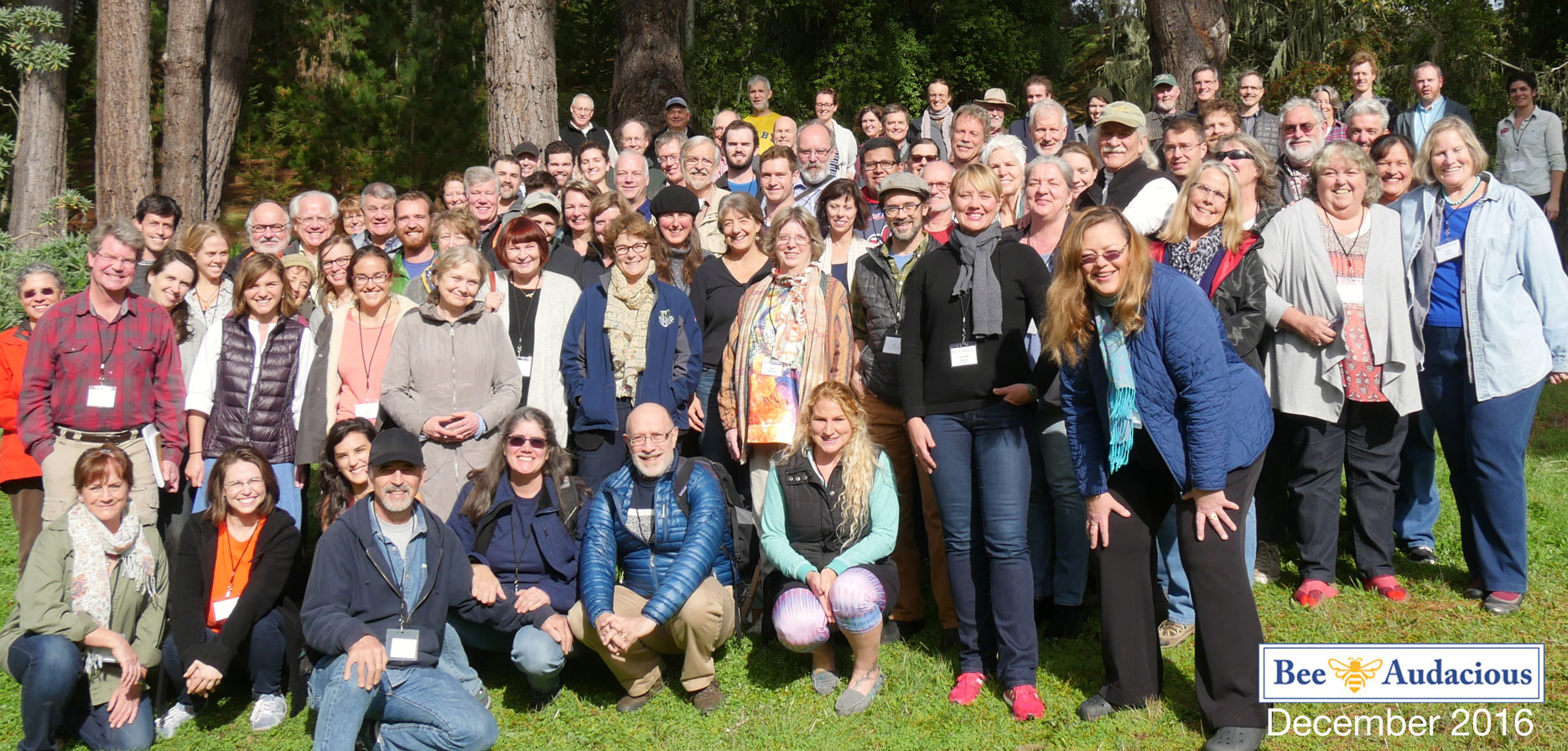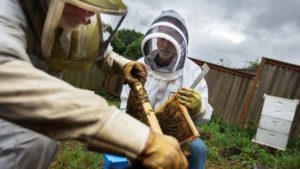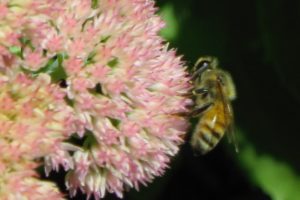Mark Winston: Perhaps the most audacious outcome from “Bee Audacious”

The First Bee Audacious Conference – Marshall, CA 12/2016, photo by Sierra Salin
Report Back from Mark Winston
Perhaps the most audacious outcome from “Bee Audacious” was that those holding widely divergent points of view about bee and pollinator issues, perspectives that often appear in conflict, were able to collaborate and find broad areas of agreement.
Beekeepers and wild bee enthusiasts may clash about managed pollination vs. the ecological services of wild bees, yet through dialogue reached agreement on balanced policies that would support both. Treatment-free beekeepers and those who medicate against diseases and pests have been on opposite sides of a very argumentative fence, yet moved easily during our meeting to the joint position that diverse disease/pest management options are healthy, and strategies can be found through which they can coexist.
Vocal anti-pesticide advocates interacted with those concerned about alienating farmers who believe crop production depends on pesticides. The two perspectives established a common ground to work with progressive farmers to encourage pesticide-reduced options that would benefit bees while sustaining crop production.
Commercial beekeepers who run thousands of colonies, and hobby beekeepers with one or two, generally attend different meetings. Yet, for the two days of “Bee Audacious” we enjoyed getting to know each other, having meals and socializing, working hard together in breakout groups to generate audacious ideas that a wide range of beekeepers could support.
The boldest idea to emerge from “Bee Audacious” was that the full spectrum of those interested in bees and pollination could find accord, forming alliances organized enough to have considerable impact on the health and welfare of both managed and wild bees. Indeed, that common ground covered considerable territory, with a cornucopia of audacious, inspiring and actionable ideas that will be spread throughout the report that will be available in March 2017.
“Bee Audacious” provided another lesson for bees and beekeepers alike, the power of diversity to overcome singularity. The varied perspectives at the meeting generated ideas well beyond any individual, just as ecosystems characterized by diversity are more resilient and able to withstand considerably more perturbation than mono-toned habitats.
What is true for bees is true for us as well. Pollination systems that employ multiple bee species are far more stable and effective than single-species habitats, just as a beekeeping meeting attended by numerous points of view yields the most durable outcomes.
Sometimes the most audacious thing we can do is reach across the aisles that separate us to work collaboratively with those with whom we disagree. Disagreements dissolve and cooperation emerges when dialogue rather than debate becomes the modality of interaction.
In that way “Bee Audacious” taught us something considerably more important than the pollinator issues that brought us to the Marconi Conference Center. Civility is possible, and positive collaborative outcomes likely, when we rise to respectfully listen to each other above perceived differences.
We are our finest and most effective selves when solitary becomes communal. It is through collaboration that our future prosperity and the health of our bees will be best assured.
Mark Winton

Professor and Senior Fellow, Simon Fraser University Centre for Dialogue





